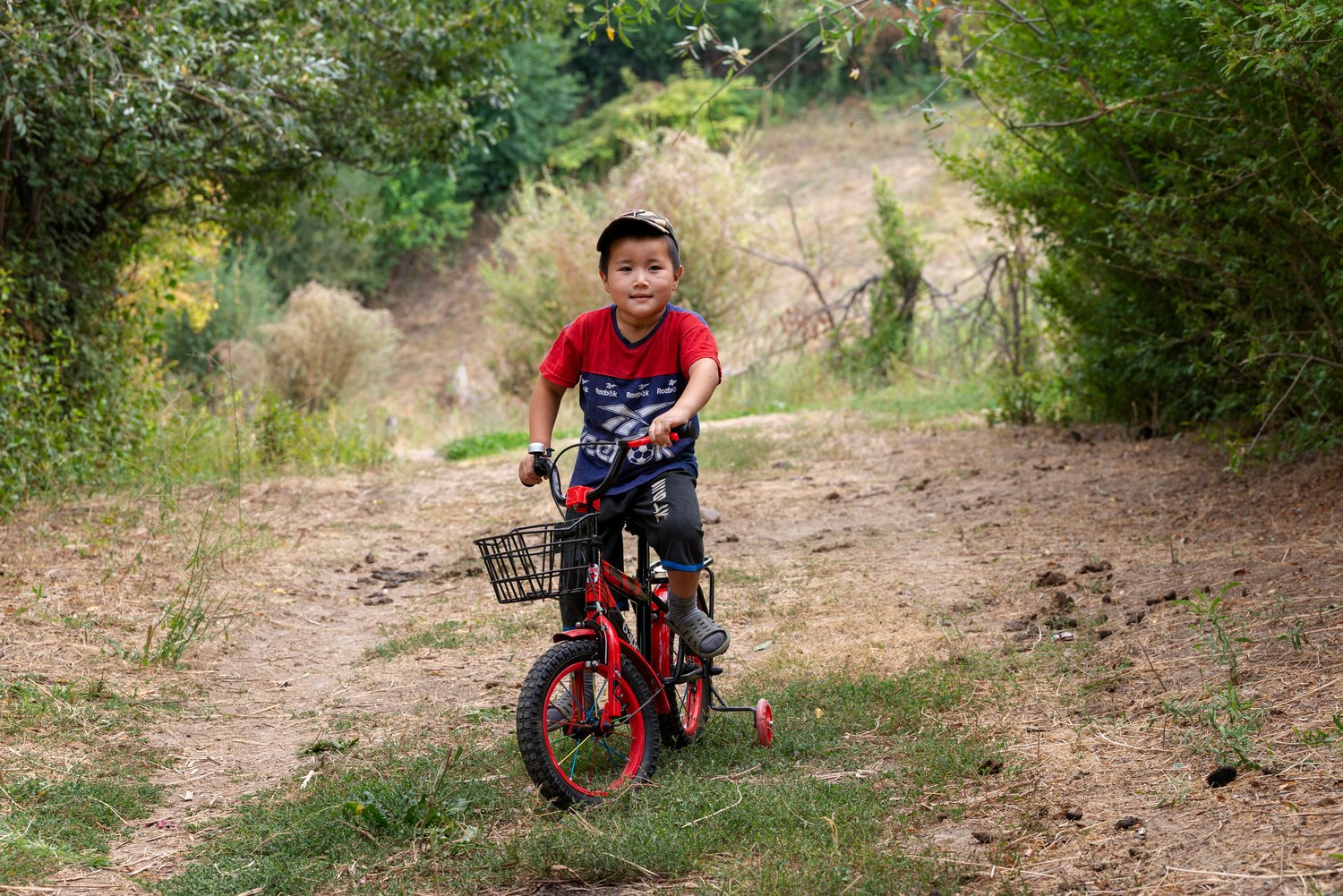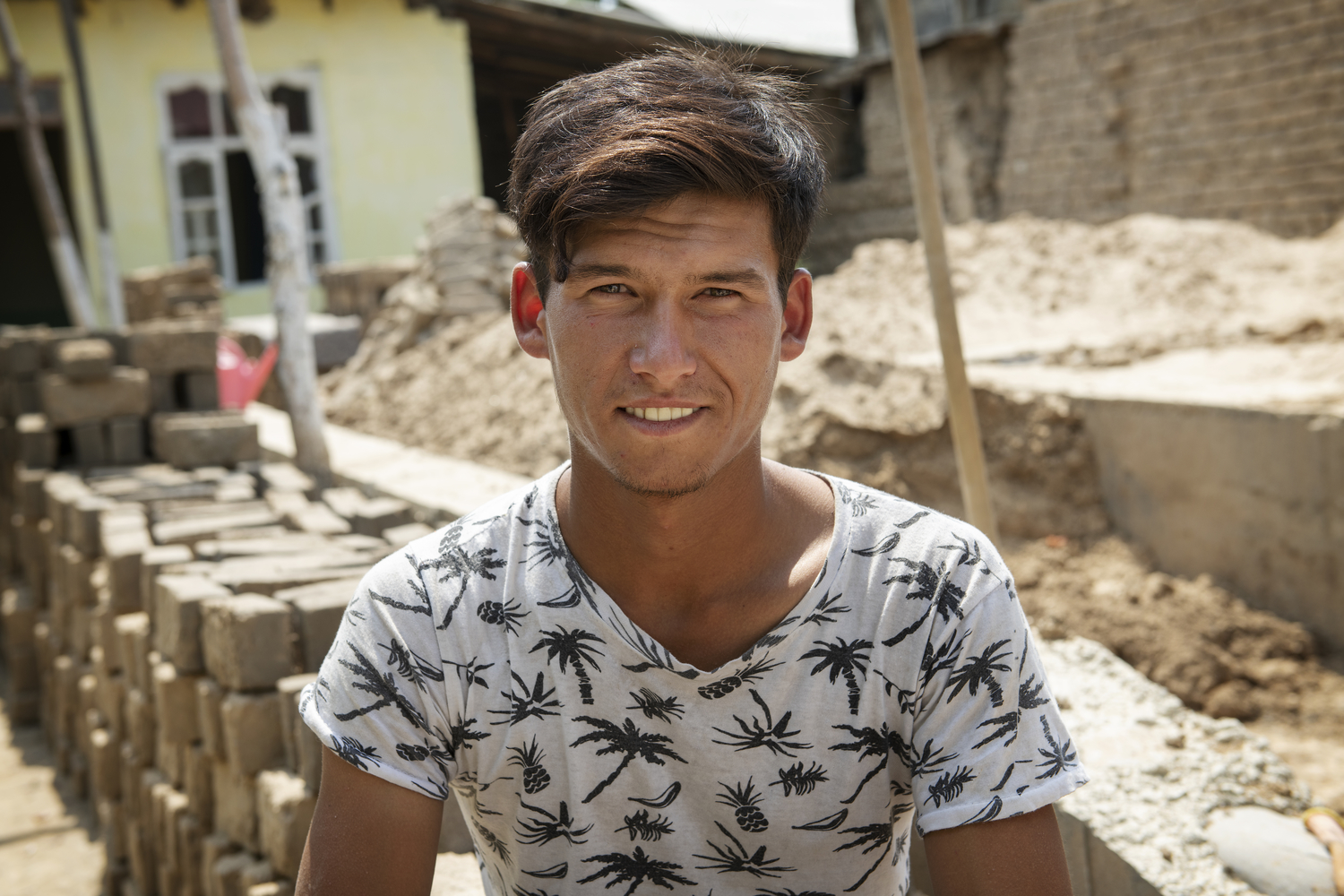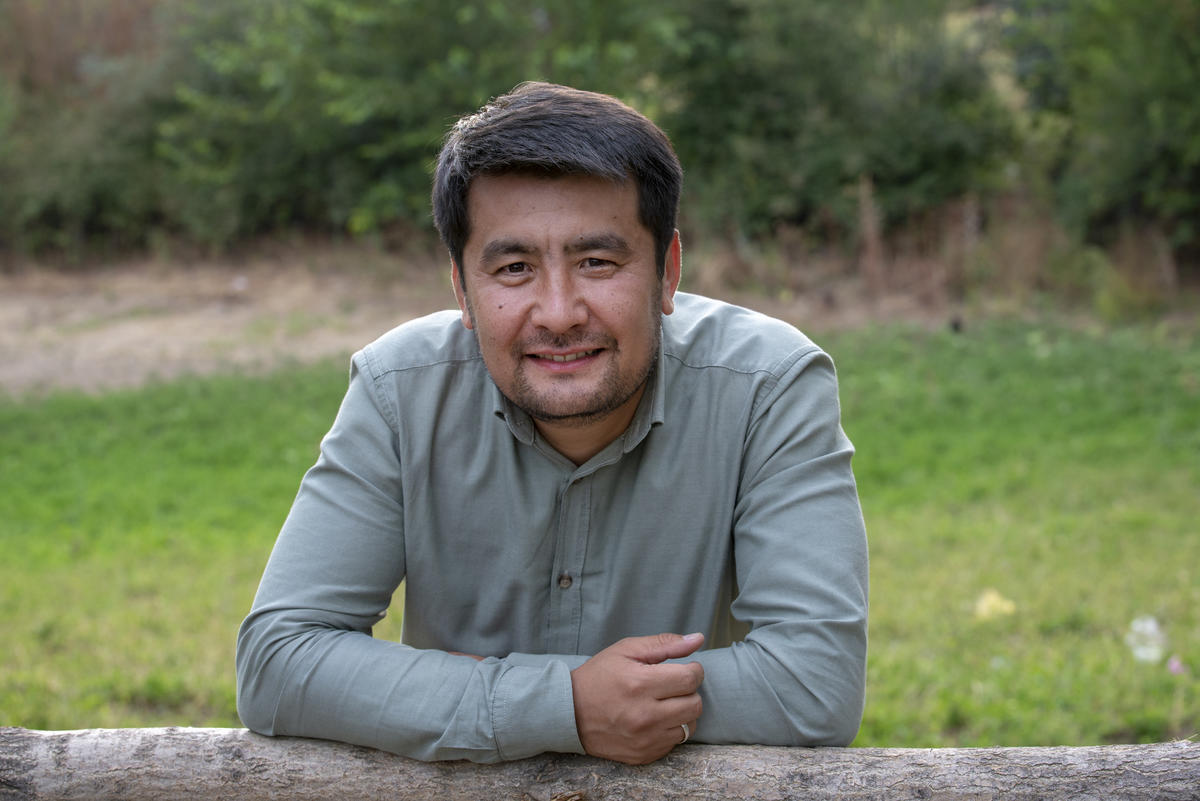Kyrgyzstan grants citizenship to Tajik refugees
Kyrgyzstan grants citizenship to Tajik refugees

BISHKEK, Kyrgyzstan, July 1 (UNHCR) - In a move hailed by refugees and UNHCR alike, the central Asian state of Kyrgyzstan today granted citizenship to 22 Tajik refugees in a ceremony held in its capital, Bishkek.
"Today is the most memorable day of my life," said Kufledin Badirov, a Tajik refugee from Alamydynskiy rayon(region), upon receiving his new passport. "I am very grateful to people of Kyrgyzstan for their warm asylum to refugees from Tajikistan. I would like also to thank UNHCR and Legal Clinic who helped us obtain citizenship."
In the last year, Kyrgyzstan has granted Kyrgyz nationality and passports to 1,274 refugees from Tajikistan who have spent at least seven years in the country.
"Refugees here have done a tremendous job at integrating," said James Lynch, who heads UNHCR's liaison office in Bishkek. He noted that the process has been helped by the fact that a majority of the country's long-time refugees were ethnic Kyrgyz who fled Tajikistan's civil conflict and who share many cultural ties with locals.
"I am ethnic Kyrgyz and for me Kyrgyz citizenship means a lot," said former refugee Badirov, now a naturalised Kyrgyz. "Firstly, Kyrgyz citizenship will strengthen my ties with Kyrgyzstan, my new motherland. Secondly, as a citizen I will enjoy additional rights that I could not enjoy before as a refugee: right to purchase land, right to vote. Now I can buy my own land!"
Monday's ceremony, attended by the deputy chairperson of the Citizenship Commission under the President of the Kyrgyz Republic, was the latest in a series of high-profile events to naturalise refugees in Kyrgyzstan. In April, First Lady Mairam Akaeva attended one such ceremony to welcome more than 130 refugee-turned-citizens. She told them, "Your choice to become citizens, to live and bring up your children here, demonstrates the highly humanistic spirit of Kyrgyz people and is an achievement of Kyrgyzstan."
After years of review and amendments, Kyrgyzstan recently produced what many refugee law advocates consider to be a model refugee law.
The new refugee legislation, the Law of the Kyrgyz Republic on Refugees, was passed by the country's Jogorku Kenesh (parliament) on February 14 and signed by President Askar Akaev on March 26.
For UNHCR, the signing of the refugee law, together with the rapid action by Kyrgyzstan to naturalise long-time refugees, was the culmination of many years of hard work and co-operation with the government and various sectors of the country's civil society.
"It was a long-outstanding issue that finally bore some fruit," said UNHCR's Lynch. "The new law sets up the standard that people get a hearing, and they have the right of appeal."
Beginning as far back as 1998, the UN refugee agency had worked closely with a number of government officials, non-governmental agencies and various parliamentarians on early drafts of the recently-promulgated refugee law. The new legislation improves on the country's previous "Temporary Provision on Refugees" in a number of ways.
The most important improvement is that the new law removes references to "safe-country" alternative contained in the earlier provision that caused many asylum seekers to be rejected as they had passed through other states before finally arriving in Kyrgyzstan.
The country's new law also gives rejected asylum seekers the right to appeal the initial decision regarding their claim to asylum through judicial review, an option that individuals fleeing their homeland did not have under the country's temporary legislation.
UNHCR believes that the legislation also expands upon definitions as embodied in the 1951 Convention, as it also defines a refugee as anyone fleeing civil strife - a more encompassing standard similar to that included in the refugee Convention of the Organisation of African Unity.
In order to help increase the public's understanding of why a law was required and enhance the possibility that more refugees might get Kyrgyz nationality, UNHCR staff in Bishkek embarked on a number of ventures to spread the word that refugees were not a threat.
The refugee agency also worked to make both government officials and the public aware of the fact that many of the country's more than 7,950 refugees and 400 asylum seekers were already well integrated, many of them successful farmers.
But despite the increased level of attention the refugee naturalisation process has received, and the many positive aspects of the new refugee law, UNHCR remains on the lookout regarding the application of the fresh statutes. The agency hopes these will be implemented as quickly as the welcome legislation was accepted by the country's parliament.








